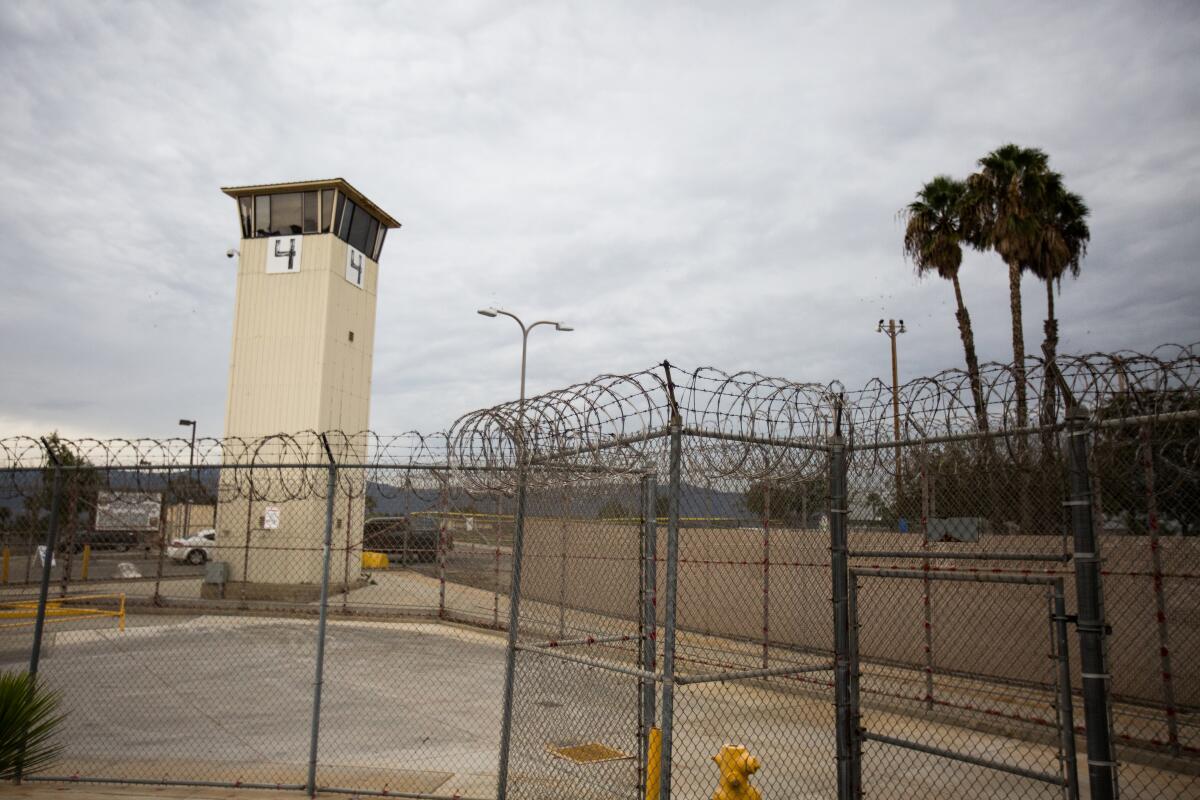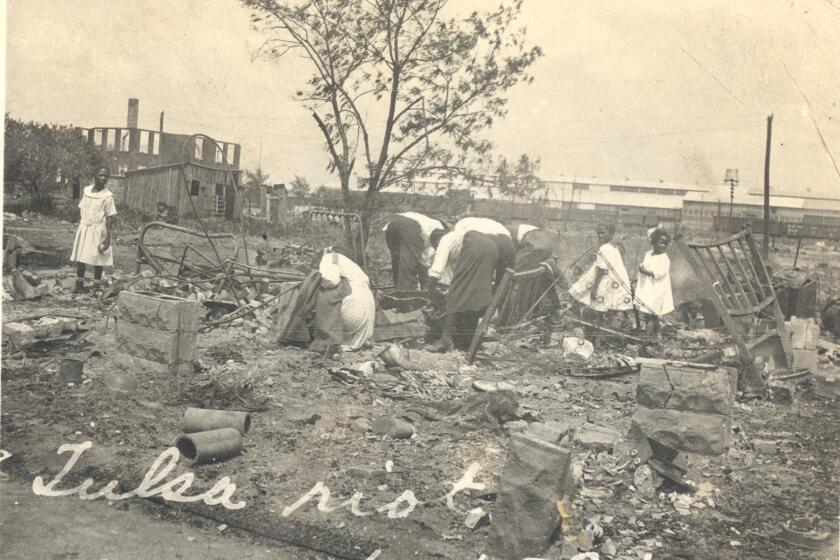Editorial: California bill can limit role of racism in the criminal justice system

It’s hardly news that Black Americans are overrepresented in prison. Nationwide, Black people are locked up in state prison at a rate of 1,240 per 100,000 residents, as compared with 261 whites. That’s 4.8 times greater incarceration of Black than white people, based on 2019 data from the U.S. Bureau of Justice Statistics. On average, one of every 81 Black Americans is in a state prison.
In California, it’s worse. One of 62 Black Californians is in state prison.
Latinos, too, are disproportionately imprisoned: 349 per 100,000 nationwide, or a rate of 1.3 to 1 when compared with non-Latino whites.
Those numbers are beyond debate. The question is why?
Through much of our recent history, the mollifying answer was that Black and Latino people commit more crimes than those from other ethnic groups, and a well-tuned, colorblind justice system responds evenhandedly. Even today, when confronted with evidence that racism infects law enforcement, trial and punishment, defenders of the status quo insist that there is nothing amiss.
Lawmakers could improve the justice system by increasing police transparency, expanding diversion of defendants and rolling back the unequal impacts of racism.
That attitude threatens the nation and its democratic and legal institutions. An enlightened society seeks information, tests assumptions and corrects errors that undermine its most cherished principles. And it recognizes warning signs of instability and unfairness. Racial and ethnic disparities are an unmistakable warning even in the absence of identifiable racism.
And let’s be clear — there is abundant evidence of racism undermining equal justice, sometimes incidentally, sometimes blatantly. The incidental category includes pretrial detention, in which money bail ensures that people without access to large sums of money — disproportionately people of color — are held in jail pending trial, while people with money — disproportionately white — go free.
More straightforward racism can be found in prosecution of gun crimes, for which Black people are more likely than white people to be arrested, to get longer base sentences and enhancements for similar offenses, according to the U.S. Sentencing Commission. Black people are four times more likely to be arrested for drug crimes than white people despite similar rates of use and sales, according to a Brookings Institution study. Black men are 21.25% less likely than white men to get sentence reductions from judges for similar crimes, according to the Sentencing Commission, and when they did get reductions, their sentences were still 16.85% longer than their white counterparts. (Historically, fewer data have been uniformly collected and analyzed regarding Latinos than Black people in the criminal justice system.)
Apologists for the status quo insist that Black people are sentenced more frequently and to longer terms because they are more likely to have longer criminal records, which means they are more likely to be sentenced under enhancement laws that lengthen sentences for previous convictions. That may be so, but according to The Sentencing Project, that only demonstrates that the disproportionate arrests serve to compound the pre-existing injustice and exacerbate the justice gap.
One study suggests that as the disparity grows — as U.S. prison populations become Blacker — the greater the public support for harsher sentences. The cycle feeds on itself.
The Times Editorial Board examines the reckoning of the last year and considers what it means for policing and protest in Los Angeles and elsewhere.
In 1987, the Supreme Court ruled in McCleskey vs. Kemp that statistical evidence of racial discrimination was insufficient to overturn a death sentence, and by extension any other unjust sanction based at least in part on systemic racism. To prove their convictions were tainted by race, defendants have to show that it was deliberate and targeted at them. That’s a virtually impossible standard to meet and makes a mockery out of the American creed of equal justice under law.
In 2020, California adopted the Racial Justice Act to finally permit judges to consider this type of data during the charging, conviction or sentencing phase in criminal cases. Defendants still must show that racial bias affected the charges or the sanctions. Remedies include dismissal of sentence enhancements or special circumstance findings but not outright dismissal of a case in which evidence of guilt is proved.
Gov. Gavin Newsom signed the bill during a year of renewed public attention to racism in the justice system following the police murder of George Floyd in Minneapolis. But it was prospective. People already in prison who can show racial animus in proceedings against them, or that there is statistical evidence of racial disproportionality, were out of luck.
Equal justice must not be a passing fashion. This year lawmakers passed AB 256, which would apply the racial justice law retroactively, as is the case with California criminal justice reform laws that govern past felony marijuana and theft convictions. Newsom should keep the state on track and sign the bill.
More to Read
A cure for the common opinion
Get thought-provoking perspectives with our weekly newsletter.
You may occasionally receive promotional content from the Los Angeles Times.












